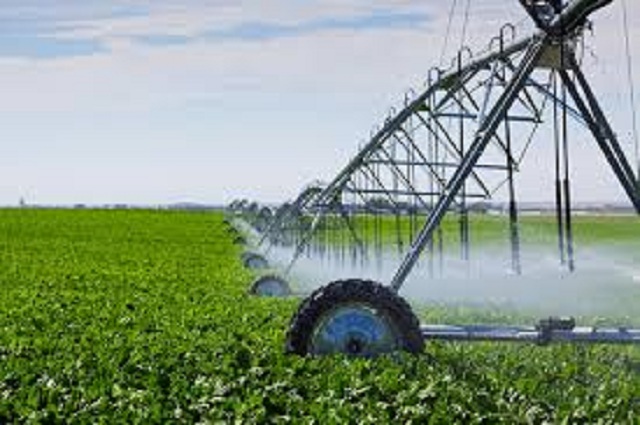
The Sunday News

Dumisani Nsingo, Senior Farming Reporter
MATABELELAND region last week dispatched its Special Sub-Committee on Food Security and Nutrition to carry out an emergency irrigation development programme assessment and its findings are expected to be tabled tomorrow with a comprehensive report scheduled to be sent to the National Committee in Harare on Tuesday.
At its 43rd meeting held on 8 December 2015, Cabinet agreed that an Emergency Committee of Ministers be established to look into areas with water that is not being utilised during this planting season, with the view of assisting farmers to utilise the water for irrigation purposes.
The committee chaired by Agriculture, Mechanisation and Irrigation Development Minister Dr Joseph Made comprises the Minister of Lands and Rural Resettlement, Dr Douglas Mombeshora, the Minister of Environment, Water and Climate, Oppah Muchinguri-Kashiri, the Minister of Finance and Economic Development, Patrick Chinamasa, Minister of Macro-Economic Planning and Investment Promotion, Dr Obert Mpofu and the Minister of Rural Development, Promotion and Preservation of National Culture and Heritage, Abedinigo Ncube and the District Development Fund.
Dr Made’s task was to ensure that the committee brought its report for consideration and approval by Cabinet in two weeks’ time through the Cabinet Committee on Food Security and Nutrition.
The objectives of the Cabinet Committee on Food Security and Nutrition is to ensure the rehabilitation of 50 000 hectares of irrigation land over a period of a six month-emergency period, to create and operate an irrigation financing model and to strengthen the irrigation sector operational structures.
Zimbabwe has an irrigation potential of 2,2 million hectares. It currently has some irrigation facilities on about 200 000 hectares. About 120 000 hectares has some functional infrastructure, the balance of 80 000 hectares is dysfunctional.
“A comprehensive programme should address the issues of rehabilitation on per scheme basis. Each scheme must be assessed and all the scheme requirements supplied and fitted as part of the programme. Schemes must not be supplied with part requirements.
“The emergency rehabilitation programme must cover all the agricultural sectors of Zimbabwe and all Government technical services must be mobilised. The rehabilitated hectarage will increase early planting programme, mid-season drought supplementary precipitation, winter cropping programmes and horticulture cropping programmes,” read a letter addressed to Dr Made by the Chief Secretary to the President and Cabinet, Dr Misheck Sibanda.
Matabeleland North Department of Irrigation Development chief engineer Charles Makhula confirmed the disbursement of the provincial Special Sub-Committee on Food Security and Nutrition team for assessment in all the province’s districts.
The team comprises officials from the Ministry of Local Government, Public Works and National Housing which shall be responsible for the mobilisation of beneficiary communities, Ministry of Rural Development, Promotion and Preservation of National Culture and Heritage (to be involved in the project identification process), Zimbabwe National Water Authority (Zinwa) (rehabilitation of large pumping stations and dams), Zesa (rehabilitation of power lines, transformers and measuring meters), Agricultural and Rural Development Authority (rehabilitation of institutional irrigation facilities), District Development Fund (rehabilitation of small to medium sized dams and irrigation schemes of up to 20 hectares) and the Department of Irrigation Development (rehabilitation of irrigation schemes).
“The teams went on the ground today (Friday) after we conducted desk assessment over the past two days and no one is going to take a break for the weekend. We expect to be compiling a report on Monday and sending it to Harare by Tuesday.
“Basically there is water infrastructure that needs to be rehabilitated but people are in need of inputs and there are some reports of farmers whose supplies of electricity and water have been cut due to non-payment of bills,” said Eng Makhula.
He said most irrigation farmers were failing to turn their agriculture enterprises into viable entities due to the commercial rates they are being subjected to by service providers such as Zinwa and Zesa Holdings.
“The pricing model exerted on irrigation farmers is premised on the pre-independence era. The service providers are charging farmers commercial rates but we have to appreciate that world over agriculture should be subsidised,” said Eng Makhula.
Efforts to get a comment from Matabeleland South provincial chief irrigation engineer Shepard Mpotegwa were fruitless as his mobile phone number was out of reach by the time of going to Press. However, Eng Makhula confirmed that the exercise was being carried out simultaneously in the two provinces.



